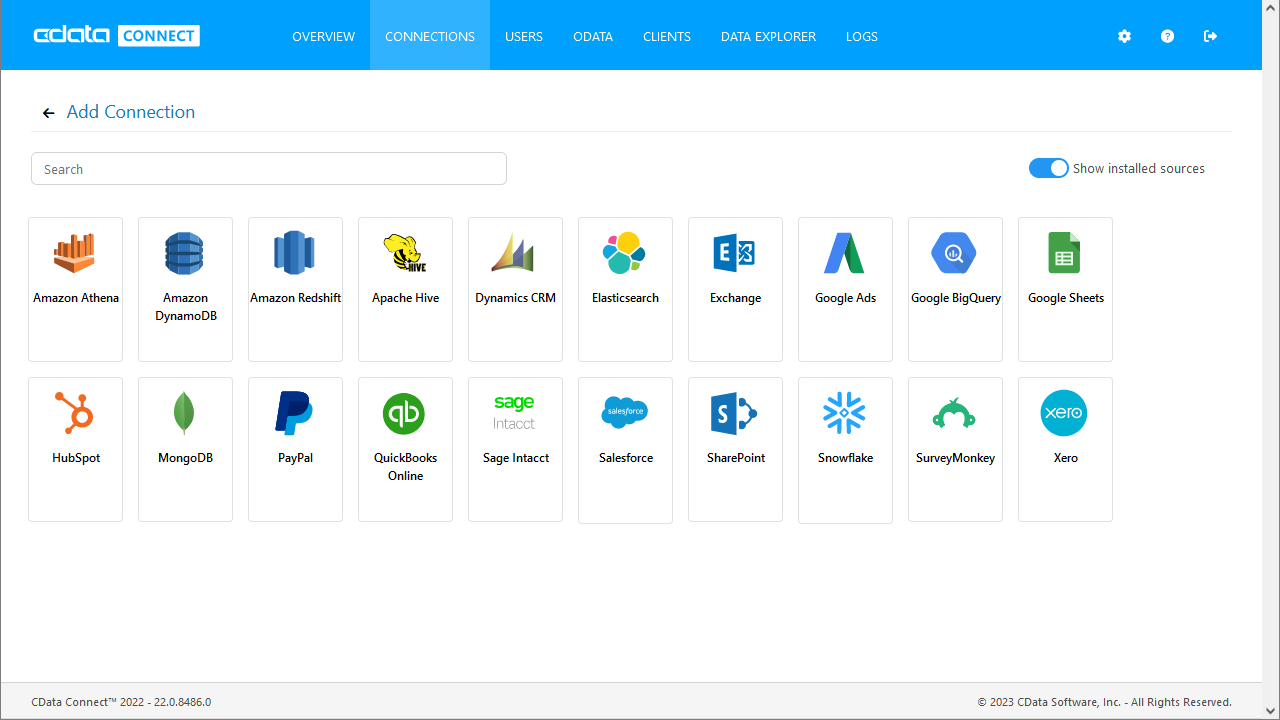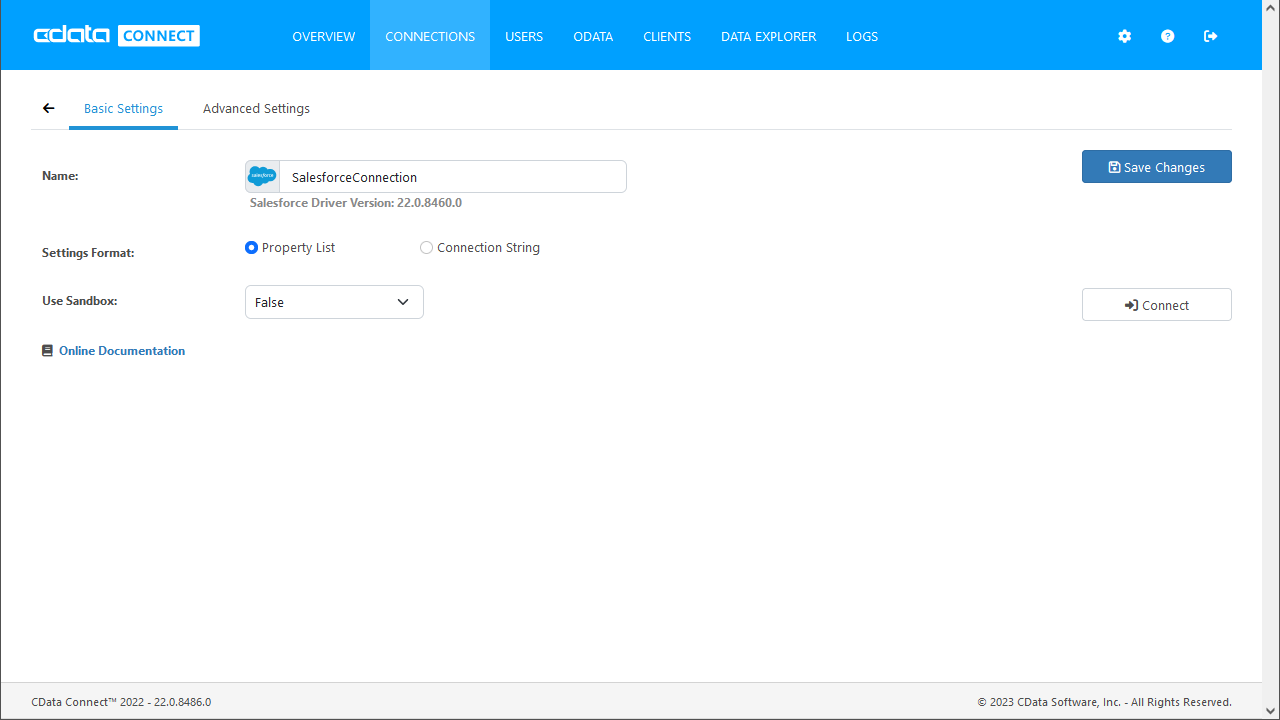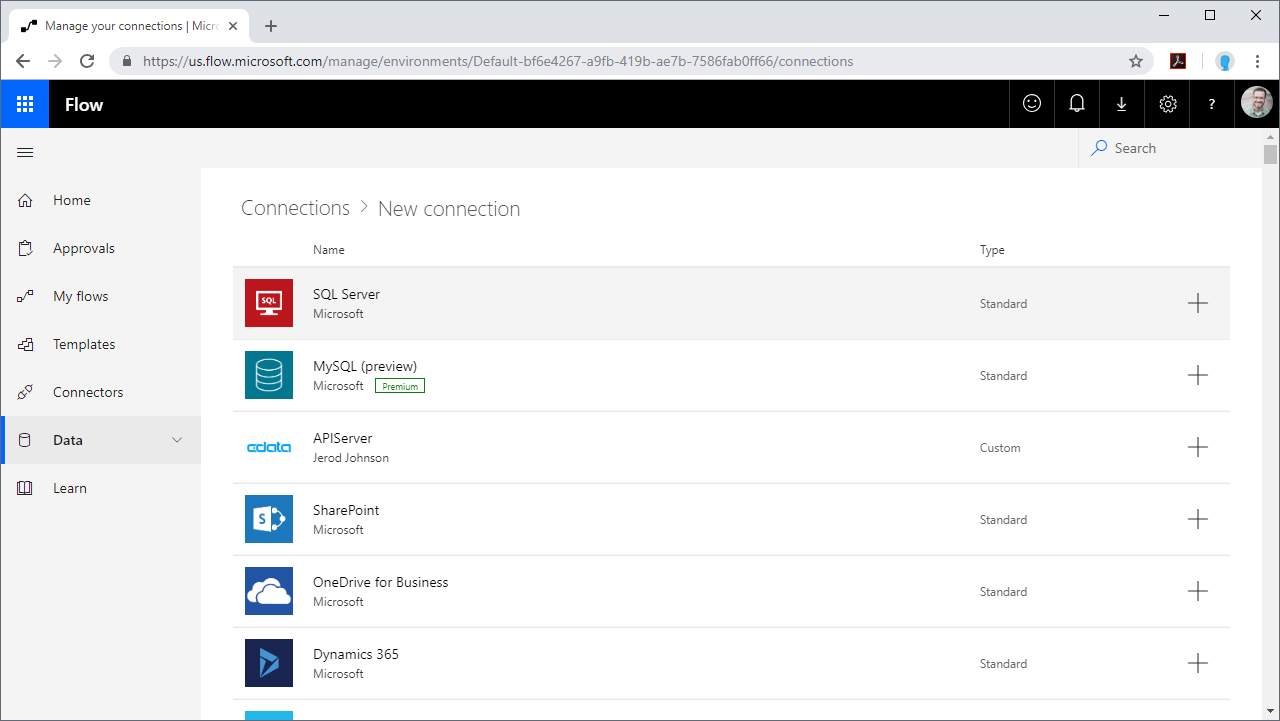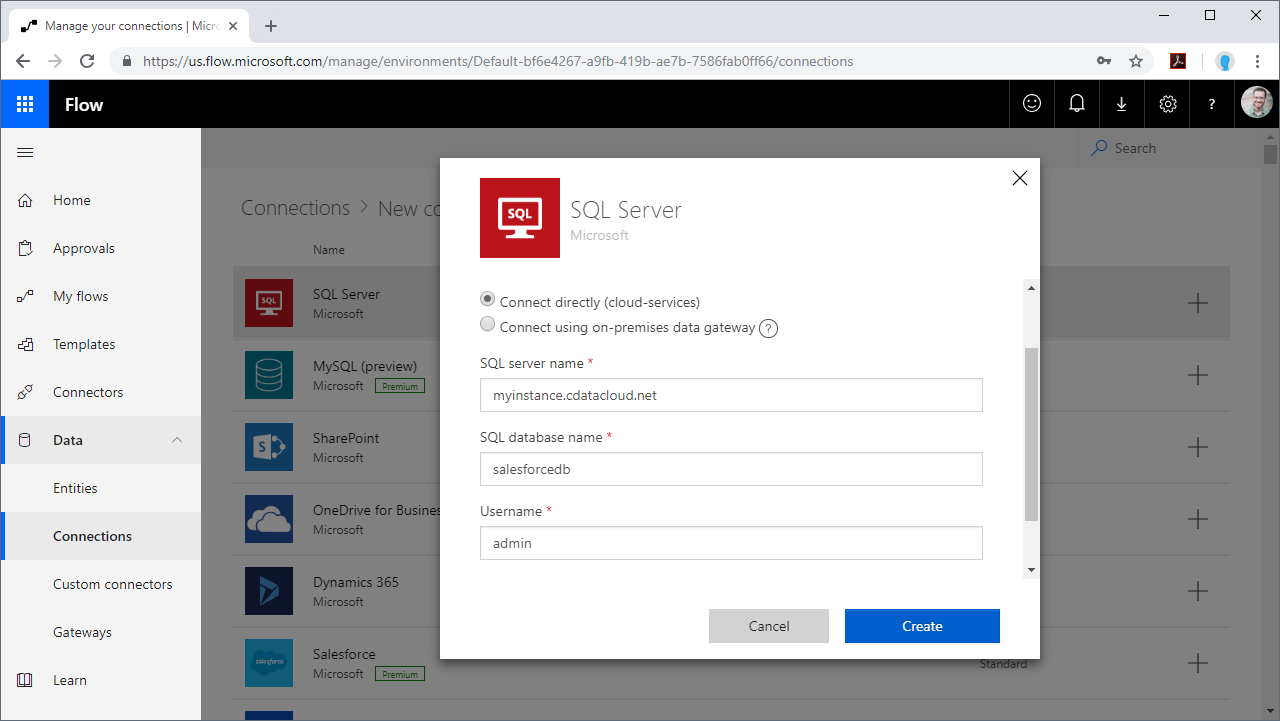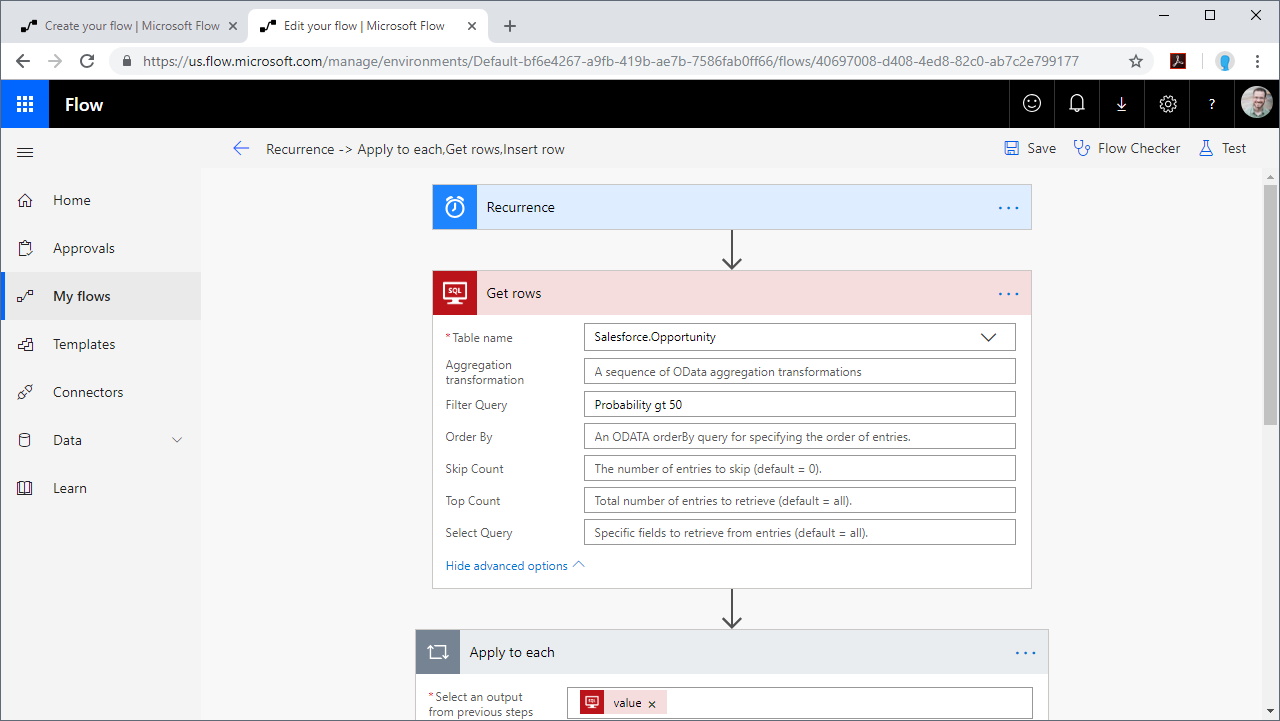Discover how a bimodal integration strategy can address the major data management challenges facing your organization today.
Get the Report →Integrate Printify Data into Automated Tasks with Power Automate
Use CData Connect Server to create a virtual SQL Server database for Printify data and integrate live Printify data into your Power Automate (Microsoft Flow) tasks.
Power Automate (Microsoft Flow) is an online service that automates events (known as workflows) across the most common apps and services. When paired with CData Connect Server, you get instant, cloud-to-cloud access to Printify data for visualizations, dashboards, and more. This article shows how to connect to Connect Server from Power Automate and integrate live Printify data into your workflows and tasks.
CData Connect Server provides a pure SQL interface for Printify, allowing you to easily integrate with live Printify data in Power Automate — without replicating the data. CData Connect Server looks exactly like a SQL Server database to Power Automate and uses optimized data processing out of the box to push all supported SQL operations (filters, JOINs, etc) directly to Printify, leveraging server-side processing to quickly return Printify data.
Create a Virtual SQL Database for Printify Data
CData Connect Server uses a straightforward, point-and-click interface to connect to data sources and generate APIs.
- Login to Connect Server and click Connections.
![Adding a connection]()
- Select "Printify" from Available Data Sources.
-
Enter the necessary authentication properties to connect to Printify.
Start by setting the Profile connection property to the location of the Printify Profile on disk (e.g. C:\profiles\Profile.apip). Next, set the ProfileSettings connection property to the connection string for Printify (see below).
Printify API Profile Settings
In order to authenticate to Printify, you'll need to provide your API Key. To get your API Key navigate to My Profile, then Connections. In the Connections section you will be able to generate your Personal Access Token (API Key) and set your Token Access Scopes. Personal Access Tokens are valid for one year. An expired Personal Access Token can be re-generated using the same steps after it expires. Set the API Key to your Personal Access Token in the ProfileSettings property to connect.
![Configuring a connection (SQL Server is shown).]()
- Click Save Changes
- Click Privileges -> Add and add the new user (or an existing user) with the appropriate permissions.
Connecting to CData Connect Server
To use Connect Server to integrate Printify data into your Power Automate tasks, you need a new SQL Server connection:
- Log in to Power Automate
- Click Data -> Connections -> New connection
- Select SQL Server
![Creating a new SQL Server Connection]()
- In the connection wizard:
- Set Authentication Type to "SQL Server Authentication"
- Set SQL server name to the address of your Connect Server instance (connect_server_url)
- Set SQL database name to the name of the virtual Printify database you created earlier (like printifydb)
- Set the Username and Password and click Create
![Connecting to Connect Server]()
Integrating Printify Data into Power Automate Tasks
With the connection to Connect Server configured, you are ready to integrate live Printify data into your Power Automate tasks.
- Log in to Power Automate
- Click My flows -> New and choose to create the flow from blank or template
- Add (or configure) a SQL Server action (like Get rows) and configure the action to connect to your Connect Server connection
- Select a Table to work with (from the drop-down menu) and configure any advanced options (like filters, orders, etc)
![Getting Printify "Rows"]()
- Configure any actions to follow and test, then save the flow
SQL Access to Printify Data from Applications
Now you have a direct connection to live Printify data from Power Automate tasks. You can create more connections and workflows to drive business — all without replicating Printify data.
To get SQL data access to 200+ SaaS, Big Data, and NoSQL sources directly from your applications, see the CData Connect Server.
Related Power Automate Articles
This article walks through using CData Connect Server with Power Automate (Online). Check out our other articles for more ways to work with Power Automate Desktop:






